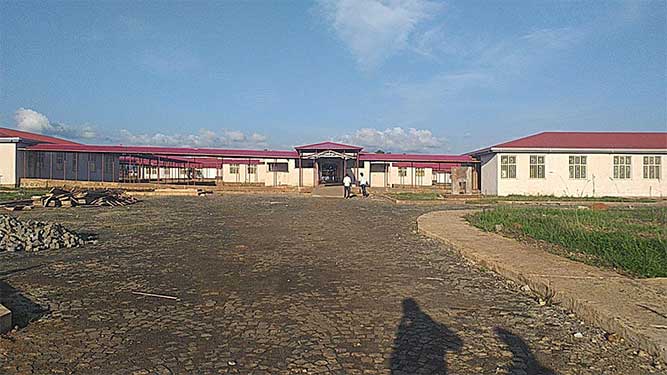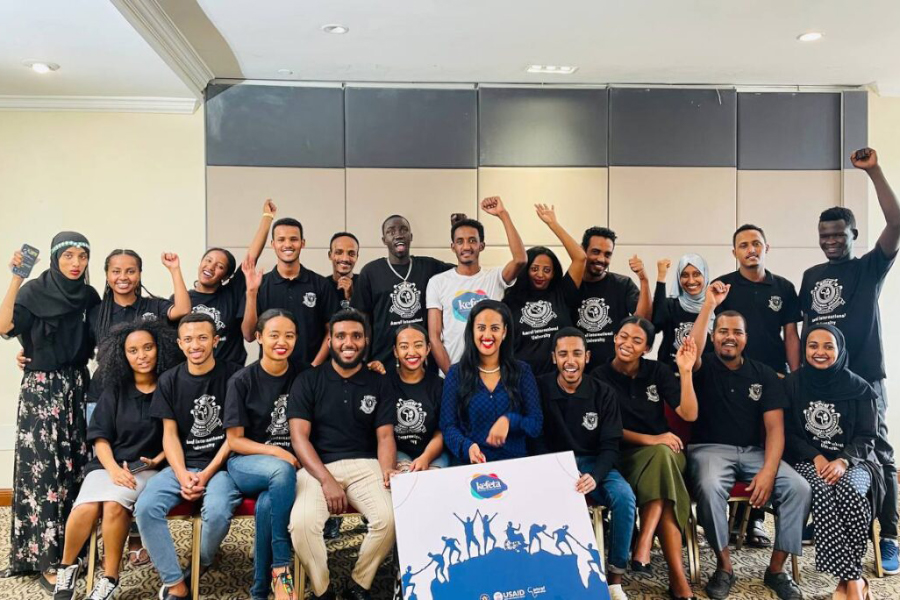
Radar | Oct 16,2021
The Ethiopian Capital Markets Authority (ECMA) focuses on setting up local currency bond markets with an estimated budget of around 1.5 million dollars, signing a four-year technical assistance program with the International Finance Corporation (IFC) last week.
A reform plan for market-based issuance of government securities, effective government debt management, and improved capacities of regulators and market participants along a pipeline of demonstration transactions are the key goals set to be realised by the end of the project in 2027.
Dubbed a development project launch, the signing ceremony saw the attendance of Mamo Mehretu, board chairman of the ECMA and governor of the National Bank of Ethiopia (NBE), Brook Taye (PhD), director general of the ECMA along with Madalo Minofu, country manager of the IFC and Aliou Maiga, director of IFC financial institution group.
The Director General outlined the importance of the agreement in helping create a securities market in which both government and corporate debt securities can be transacted for the first time in Ethiopia's history on a large scale.
Brook pointed to the key role the demonstration transactions by the IFC will play in anchoring securities to kick-start the market into full gear.
"They [IFC] will help us define the necessary tasks to create investor confidence," he underscored.
While explicating the indications by Governor Mamo that Ethiopia is moving towards an interest rate-based monetary policy framework, Brook told Fortune, "Successful implementation of monetary policy will require utilising debt securities".
He stated that liquidity constraints and excesses along with interbank overnight transactions facilitated through capital markets, perfectly complement aspirations for a well-managed monetary policy.
The Director General revealed that the public offering directive set to define the manner in which companies may open themselves up to investment from the public will be availed to public consultation in four weeks.
"We've not given any of these companies permission," he told Fortune, referencing the current wave of companies flooding advertisements with preposterous returns on investment.
Brook did not fail to acknowledge that almost all existing banks and insurance companies in the country mobilised massive resources without capital markets. "There are many that went under with people's money as well," he said.
Mamo, rarely seen in capital market functions, revealed that a three-year strategic plan for the nation's economy, which includes the manner in which financial markets will be realised, is set to be availed within a month.
The Governor pointed to the "concentration of credit" in the hands of a few people as one of the key hindrances limiting financing to critical sectors like agriculture.
"The underserved SMEs along with the overlooked agricultural sector will benefit," Mamo remarked on the promises of functional capital markets.
A study by the Brookings Institute estimates that the continent needs up to 200 billion a year for energy, irrigation, roads and rail, creating an imminent necessity for capital markets to introduce much-needed alternative financing modalities.
The ceremony also provided a platform for several of the senior staff hailing from the World Bank and the IFC to highlight the useful potential of a capital market to Ethiopia and the necessary enveloping conditions for its optimal realisation.
One of the key technical advisors for the four-year program, Zsolt Bango, senior financial sector specialist from the World Bank remarked on the importance of macroeconomic stability, a sound banking system and a credible regulatory environment as he outlined the goals of the project.
He revealed a diagnostic framework employed by the IFC that will assess the financial market infrastructure, investor base, legal regulatory framework and money markets. "There is a huge potential," Zslot said, in reference to attaining critical mass in the local investor base.
He justified the utility of local bond markets, reasoning that they provide financial stability, safeguard sovereignty and effective implementation of monetary policy.
A parallel sentiment was echoed by project leader and operations officer at the IFC, Grace Kibuthu, who reflected on the experiences of the development financier in other African countries, reiterating the importance of a sound legal framework.
The IFC committed to a record 32.8 billion dollars to private companies and financial institutions in developing countries and prepared a billion-dollar Africa Trade and Supply Chain Recovery Initiative to address trade and value chain financing needs across Africa in the wake of the COVID-19 pandemic per the corporation's annual report.
Grace pointed to the possibility of working to create some sustainable bonds like the 135 million euros green bond in Morroco that came about from IFC's assistance.
"We'll do a diagnostic of government securities," she said.
PUBLISHED ON
Sep 09,2023 [ VOL
24 , NO
1219]

Radar | Oct 16,2021

Radar | Jun 25,2022

My Opinion | Jun 21,2025

Fortune News | Jan 07,2023

Radar | Apr 19,2025

Fortune News | Sep 14,2019

Radar | Sep 29,2024

Viewpoints | Dec 31,2022

Radar | Dec 19,2018

Radar | Feb 25,2023

Dec 22 , 2024 . By TIZITA SHEWAFERAW
Charged with transforming colossal state-owned enterprises into modern and competitiv...

Aug 18 , 2024 . By AKSAH ITALO
Although predictable Yonas Zerihun's job in the ride-hailing service is not immune to...

Jul 28 , 2024 . By TIZITA SHEWAFERAW
Unhabitual, perhaps too many, Samuel Gebreyohannes, 38, used to occasionally enjoy a couple of beers at breakfast. However, he recently swit...

Jul 13 , 2024 . By AKSAH ITALO
Investors who rely on tractors, trucks, and field vehicles for commuting, transporting commodities, and f...

Jul 12 , 2025
Political leaders and their policy advisors often promise great leaps forward, yet th...

Jul 5 , 2025
Six years ago, Ethiopia was the darling of international liberal commentators. A year...

Jun 28 , 2025
Meseret Damtie, the assertive auditor general, has never been shy about naming names...

Jun 21 , 2025
A well-worn adage says, “Budget is not destiny, but it is direction.” Examining t...